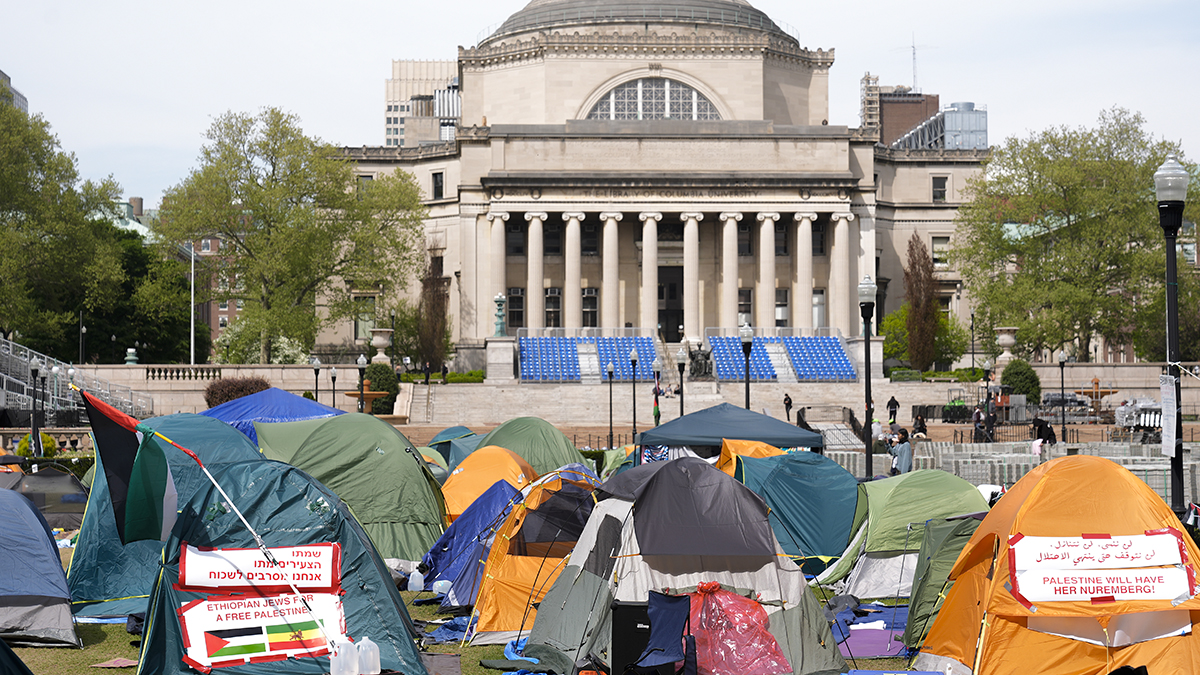The Supreme Court has ruled. The Defense of Marriage Act as it stood is no longer. So what’s next for LGBT rights?
The Supreme Court’s twin rulings last week on gay marriage capped a high-profile, high-stakes struggle for marriage rights at the federal level. Those somewhat narrow rulings didn’t end the struggle, certainly, and in their wake, individual fights over gay marriage will continue in the states.
So too will other fights — fights that those over marriage rights, waged at the polls and in the courts, have until now eclipsed. Here are three of the top LGBT rights issues facing advocates — beyond just marriage.
Employment Non-Discrimination Act.
Pop quiz: Is it legal to fire somebody for being gay? In many states, the answer is yes — despite what many Americans assume, according to one study. Twenty-one states plus Washington, D.C., already bar employers from firing workers simply for being gay, while 16 of those, plus Washington, bar them from firing workers for being transgender — but there is currently no federal law prohibiting such discrimination on the basis of sexual orientation or gender identity.
For LGBT rights activists, such a law would be a no-brainer — and would let many Americans live freely at work without fear of reprisal for their orientation. ENDA doesn’t have the galvanizing romantic appeal of the narrative surrounding gay marriage — but if passed by Congress, it could have a much more immediate practical effect on the lives and livelihoods of millions of gay and trans Americans.
The bill has been slowly gaining co-sponsors in the Senate largely thanks to the efforts the chamber’s lone openly gay member, Sen. Tammy Baldwin. Last month, it picked up its 52nd co-sponsor — giving it arguably more co-sponsors than any other LGBT rights bill has ever received, according to The Washington Blade. President Barack Obama has voiced his support repeatedly, too, most recently in comments at a Pride Month event at the White House last month.
U.S. & World
The day's top national and international news.
Expanding non-discrimination and hate crimes laws.
In 2009, President Barack Obama signed into law an expansion of a four-decades-old federal hate crimes law to include crimes based on victims’ gender, sexual orientation, gender identity or disability. The expanded legislation — named for hate crime victim Matthew Shepard — marked, among other things, the first federal law to expand legal protection to trans people.
In addition to that landmark federal law, all but five states have laws on the books addressing hate crimes rooted in racial or religious animus — but only 31 of those, plus Washington, D.C., include in those laws crimes based on victims’ sexual orientation, and only 13, plus D.C., include crimes based on gender identity as well.
Efforts are still underway in the states to expand those protections. In Delaware, Gov. Jack Markell just signed into law a bill that would add gender identity not only to its existing hate crimes law but also to its existing non-discrimination laws — meaning that discriminating against trans people will be no more legal in the First State than discriminating against black people, gay people or other protected classes. Advocates in New York are working to pass a similar bill of their own, known as the Gender Expression Non-Discrimination Act, or GENDA. It has repeatedly passed the state Assembly and has the support of Gov. Andrew Cuomo.
Conversion therapy bans.
The controversial aim of conversion, or reparative, therapy is to change patients’ sexual orientations — or, as many LGBT rights activists have derisively described it, to “pray away the gay.” The American Psychiatric Association and gay rights advocates have condemned such therapy as dangerous, saying the practice — which often targets children and teens and is often religiously aligned —can saddle kids with guilt and self-hatred over feelings they can’t change.
Legislative efforts are underway in individual states to ban conversion therapy. New Jersey’s legislature sent a ban to the desk of Gov. Chris Christie just last week, and a similar bill has been introduced in Massachusetts. In California, meanwhile, an existing ban on conversion therapy for minors is now before a federal appeals court, where challengers say the law infringes First Amendment rights.
But the conversion therapy movement was dealt perhaps its biggest blow when Exodus International, one of the most prominent ex-gay ministries espousing the therapy, folded last month. Exodus’ founder Alan Chambers issued a public apology repudiating his former group’s aims, apologizing for the damage its work had wrought and admitting that he was and probably always would be gay.
--
Those are hardly the biggest issues that gay, lesbian and transgender advocates are confronting, though. They’re just some of the ones being most publicly litigated in court, before state legislatures and at the ballot box.
Just as gay couples aim for marriage rights, they are also seeking adoption rights. Just as advocates for gay youth seek bans on conversion therapy, they're also seeking to beef up existing anti-bullying laws, particularly following the tragic suicide of gay teen Tyler Clementi in 2010.
Gay, transgender and gender non-conforming Americans are working toward immigration reform and prison policy that better protects them. Trans advocates are also working on shaping healthcare and insurance policy that covers trans people’s medical needs, like hormone treatments. (In several states, regulators have barred insurers from excluding trans-specific treatment from coverage.)
Efforts toward greater LGBT rights in the U.S. were never as monolithic as the high-profile marriage battle made them seem — just as the public face of LGBT Americans in the U.S. was never as monolithic as the five faces of Edie Windsor and the young couples Kris Perry and Sandy Stier, plus Paul Katami and Jeff Zarrillo.
The demise of DOMA's ban on federal recognition of their marriages — both couples wed Friday in California, just after a federal court cleared the way, with Proposition 8 in the rearview — ensured that no end was in sight for LGBT rights efforts in the states, for marriage and beyond it.



